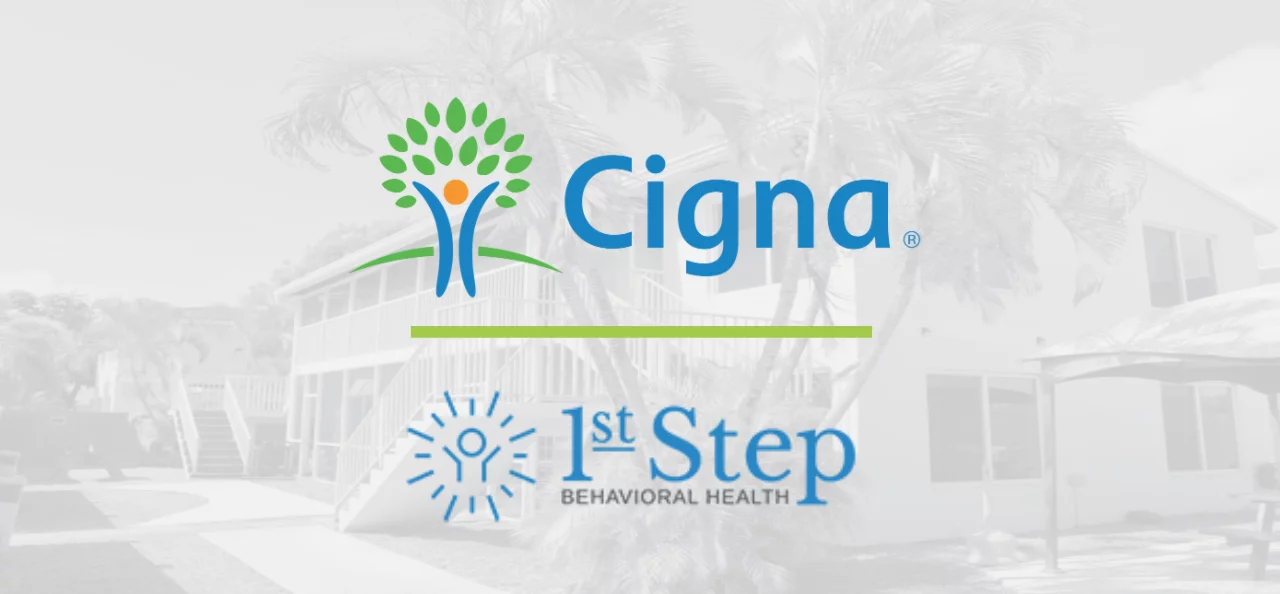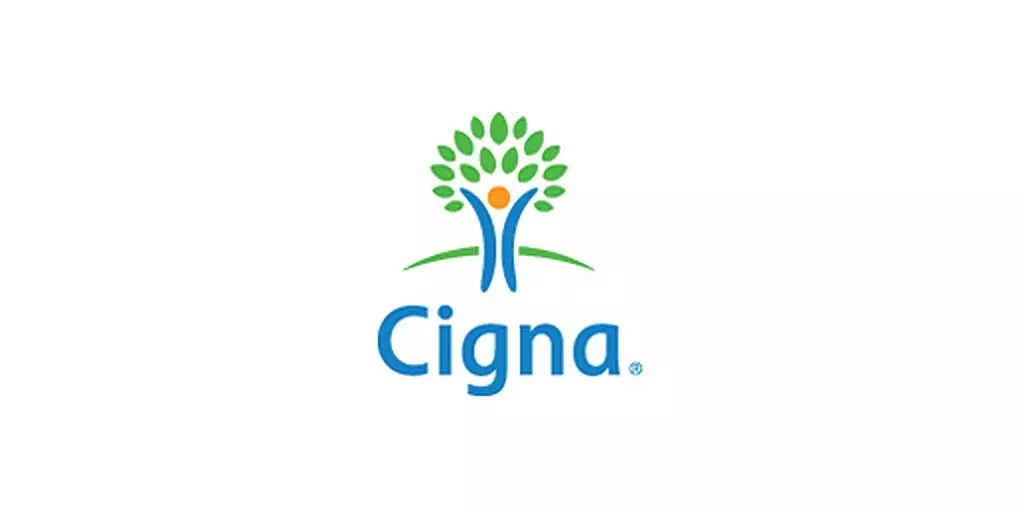Cigna Drug Rehab Coverage

Does Your Cigna Policy Cover Drug & Alcohol Rehab?
If you’re like most people entering treatment, the cost of rehab and your insurance coverage is a huge concern, and with good reason; high-quality, effective drug and alcohol treatment isn’t inexpensive. Unfortunately, it isn’t always easy to determine exactly what services your insurance plan will cover.
Cigna does cover substance abuse treatment and states that its approach is to provide every person with access to quality, patient-centered care, and consistent, meaningful outcomes.
Cigna offers many benefits that can help individuals who are suffering from a range of substance abuse and behavioral health problems. However, sorting through your Cigna insurance plan may be a little overwhelming and may leave you wondering if you will be able to take advantage of the benefits this insurance company has to offer. But at 1st Step Behavioral Health in Pompano Beach, Florida, our knowledgeable team will help you navigate through your policy to find out what will be covered by your plan.
Cigna and Addiction Treatment: Transparency in Coverage
According to Cigna’s Standards and Guidelines — Medical Necessity Criteria for Treatment of Mental Health Disorders, published in April 2020, Cigna uses guidelines and practices established by entities such as the Institute of Medicine, the American Society of Addiction Medicine, and the American Psychiatric Association to determine medical necessity and to define the most appropriate treatment for each person.
Cigna’s individual and family medical plans vary, and what Cigna pays for substance abuse treatment depends on your specific policy. However, all insurance companies are required to provide a summary of your coverage and benefits. If you have questions, call our trusted admissions counselors at 1st Step for confidential insurance verification, or you can contact Cigna’s customer service.


Exactly What Addiction Treatment Services Does Cigna Cover?
If you have Cigna insurance, you may be covered through an employer or school, direct purchase, the healthcare marketplace, or through Medicare. Depending on your plan, Cigna may pay all or part of treatment and levels of care, including:
- Inpatient treatment services
- Inpatient detox
- Outpatient treatment services
- Partial hospitalization programs (PHP)
- Mental health services
- Confidential therapy
- Access to addiction treatment specialists
- Referral services and follow-up case management
Keep in mind that coverage varies from plan to plan, and you may need prior approval from Cigna before you begin treatment.
Cigna’s Behavioral Health Division
Cigna Health Insurance offers educational resources through its Behavioral Health Division. These resources include seminars, podcasts, and other tools to help people understand mental health, behavioral health, and addiction.
These resources are beneficial for individuals struggling with addiction and their families. They provide information on addiction signs, symptoms, and effects, offering advice and guidance.
Cigna strives to cover behavioral health care, but some treatments, like aromatherapy, may not be covered as they are considered experimental.


Cigna Coverage for Medical Detox
Before addiction treatment, a medical detox program may be necessary, especially for substances like cocaine or benzodiazepines that can cause severe withdrawal symptoms. Attempting to quit abruptly without clinical supervision is dangerous and potentially fatal. Many Cigna insurance plans cover medical detoxification.
Coverage details vary based on your plan and the type of detox center. For example, your policy might cover a traditional detox program but not a rapid detox program, depending on your plan and the specific center.
Cigna Insurance Terms You Should Know
Navigating insurance can be confusing, so it’s helpful to have a basic understanding of the terms used in your policy’s contract.
- A deductible is the amount of money you must pay each year before your Cigna insurance coverage kicks in. Amounts vary depending on the plan, but you can find specifics on the Declaration page of your policy. Cigna notes that the deductible may or may not count towards your out-of-pocket maximum, depending on the plan.
- Co-pays are set amounts that you pay up-front each time you visit a medical provider. The amount of your copay, which is printed on your Cigna ID card, is separate from the deductible amount, and you’ll be required to pay it whether or not you’ve paid the deductible.
- Coinsurance refers to a percentage of the medical bill you’ll be responsible for paying after you have met your deductible. For instance, you may have an 80/20 plan, which means you’ll be billed for 20 percent of covered expenses after you’ve paid the deductible, and Cigna will pay the remaining 80 percent of the bill. Although 80/20 plans are standard, your policy may designate a different percentage, such as 70/30.
- Your Out-of-Pocket maximum is the most you’ll pay for medical expenses in a year. Once you’ve paid that amount, Cigna will pay 100 percent of all covered medical expenses, and you won’t need to worry about deductibles, copays, or coinsurance until the beginning of the next year.
Cigna also offers various types of plans, including:
- Bronze – In-network inpatient treatment has a 0% coinsurance after the deductible, while outpatient treatment may range from 0-50% coinsurance, and out-of-network facilities might not be covered.
- Silver – In-network inpatient programs may involve a 30-50% coinsurance after the deductible, with potential coinsurance or copays for in-network outpatient facilities, but out-of-network facilities may not be covered.
- Gold – In-network inpatient facilities may have a 20-50% coinsurance, and in-network outpatient visits could require minor coinsurance or copays. Out-of-network facilities may not be covered.
Platinum – In-network facilities may involve a small coinsurance or copay, and individuals can choose out-of-network rehab centers, but they may face higher coinsurance percentages.
In-Network vs. Out-of-Network: Understanding Rehab Coverage With Cigna
In-network refers to treatment providers who have agreed to work with Cigna. The bill is substantially lower because Cigna and the rehab have negotiated lower rates. On the other hand, out-of-network treatment may cost more or may not be covered at all because Cigna and the treatment provider haven’t established an agreement for lower rates. Out-of-network treatment may be included in some plans, but you might be required to pay higher deductibles and copays.
Although Cigna insurance may be accepted by many drug rehab centers, coverage options and details will vary. The amount of coverage Cigna offers for treatment depends heavily on:
- The state in which a person lives
- The type of insurance plan an individual has
- Whether the facility is in-network or out-of-network
- The type of treatment facility the individual plans to attend

Mental Health Parity and Addiction Equity Act (MHPAEA) and Your Coverage
The Mental Health Parity and Addiction Equity Act (MHPAEA), enacted by the federal government in 2008 as part of the Affordable Care Act (Obamacare), applies to most group health insurance plans, including Cigna. This legislation mandates that insurance companies must provide mental health and substance abuse benefits at the same level as physical health services. For example, if a group policy covers inpatient and outpatient medical services, it must also cover inpatient and outpatient treatment for mental health and substance abuse.
The Act ensures that copays, coinsurance, deductibles, and out-of-pocket limits are not greater than those required for physical health services, with some exceptions. It doesn’t apply to businesses with fewer than 51 employees and may not apply to state and local government employees. State-specific parity laws can override federal law in some cases.
Florida Drug & Alcohol Rehab that is In-Network With Cigna
1st Step Behavioral Health is a proud in-network addiction treatment provider with Cigna insurance. Our programs are not only evidence-based but also tailored to your unique needs. Best of all, our talented admissions team makes navigating insurance quick and easy.
You can verify your insurance information here, or give us a call or text at (855) 425-4846 and we’ll sort out the details of your plan together. Your confidentiality and privacy are always guaranteed.
